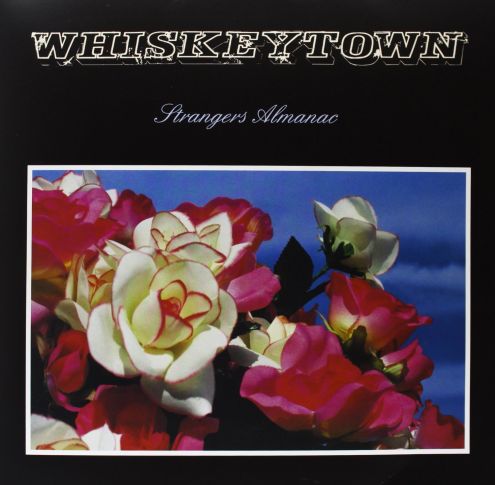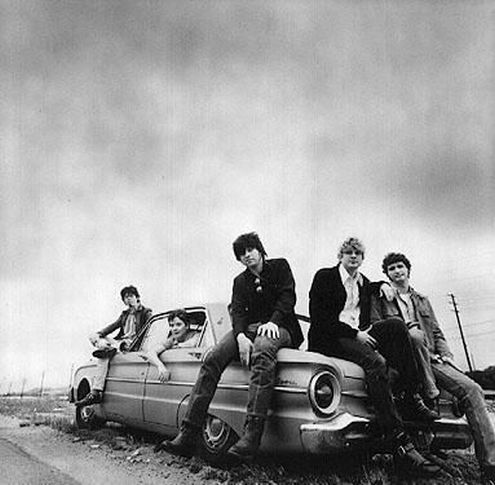My very demanding computer ordered me to update its iTunes program recently, so I did it, rather than face the unknown consequences of not having an updated iTunes program. The last thing I want is to not be able to access the tens of thousands of mp3 files on the hard drive.
Yes, there are that many.
Having so many music files has led me, over the years, to enjoy the element of surprise that comes with setting the Play function to Random. What comes up next could be a Beatles song, a Horace Silver hard bop anthem, a movement from an early Dvorák symphony, or a Bob Newhart sketch about defusing a bomb. As a result of this attention-grabbing play mode, I rarely listen straight through to albums, like we used to do back when our only music-delivery system was a black vinyl platter. Times change, truly.
I noticed that there was a new (or maybe not new, but just newly-noticed by me) feature on iTunes called “Genius.” (Such hubris!) I thought I’d try it, so I plugged in a song from one of my favorite albums and instantly had a two-hour playlist based on Josh Rouse’s “Streetlights” (from his Nashville). I shaved off the tail end of the playlist so that the collection would fit onto an 80-minute CD, burned the thing, and popped it into the truck’s CD player.
I’d been cycling through the playlist for a couple of days, enjoying the mix that really did complement the Josh Rouse song well. There were some early ’00’s rock songs from the likes of Pete Yorn and Matt Pond PA, but the majority of the selections were straight-ahead Americana: Jayhawks, Wilco, Josh Ritter, Whiskeytown and Ryan Adams. It was – and is – quite nice; eerily so, as if I had consciously compiled the tracks myself.
I kept replaying one song, in particular. Penned by Whiskeytown frontman Ryan Adams and recorded by that group on their second album, Strangers Almanac, it’s about as simply-structured as a song can be. Yet, like a movement from a Beethoven symphony, perhaps, its beginning verse relates to its central verse which leads very naturally to the conclusions of the final verse, and the practically-identical choruses bridge them all, creating a light-bulb revelation to the listener once the tune’s conclusion is reached.
You may get something different from the song, but, to me, Dancing with the Women at the Bar describes a tragedy of inheritance. The father’s philandering behavior leads to the son’s carousing which, it is hinted in the lyrics, is an influence on his cronies and, one would reasonably guess, on his own son, too. In my current frame of thinking, and in my current geographic placement, this seems like a particularly Southern myth of legacy. I am familiar with more Sr’s, Jr’s and III’s around here than in any other place I have yet lived (the many legacy sons I knew in Cambridge came there from all over the world), and assume that those men share more familial traits – both respectable and unsavory – than just their name. Brick and Big Daddy (in Cat on a Hot Tin Roof) and their Mississippi-based cycle of lies and alcoholism and dysfunctional sexual relationships come immediately to mind. Surely, you can rattle one or two cultural examples off the top of your head, too. Maybe you’ve even known a guy like the fellow in this song: night falls and he’s pulled by a mighty impulse to a nearby bar, where he drinks and flirts in the hope of replacing something he’s missing or has lost, knowing full well that he’s repeating a pattern, but unable to quell the crushing leverage of his history.
The foot-tapping, ambling country rhythm of the song – which seems to want to communicate the lyrics as wistful – just makes the tragedy of this situation feel more devastating and poignant.
[audio:Whiskeytown_Dancing with the Women at the Bar.mp3]When I see the moon, I hear the sound of the strip
Just calling my name
Just calling my name
When I see the moon, I hear the sound of the strip
Just calling my name
Yeah, its calling my nameMan, I love the feeling
When I go out
Dancing with the women at the bar
Man, I love the feeling
When I go out
I always know my woman’s close somewhereMy daddy saw the moon, heard the sound of the strip
It called out his name
It called out his name
My daddy saw the moon and heard the sound of the strip
Yeah, it called out his name
And it called his son’s name, tooMan, I love the feeling
When I go out
Dancing with the women at the bar
Man, I love the feeling
When I go out
I always know my woman’s close somewhere
Close somewhereWhen you see the moon, hear the sound of the strip
Yeah, call out my name
Yeah, call out my name
And if you see the moon or hear the sound of the strip
Yeah, call out my name
Yeah, and call my friends’ names, tooMan, I love the feeling
When I go out
Dancing with the women at the bar
Man, I love the feeling
When I go out
I always know my woman’s close somewhere
Close somewhere




2 responses so far ↓
1 Chris // Jun 19, 2014 at 8:10 PM
You’re right about the foot tapping. Mine started just seconds into the song. By the second verse, the H started tapping his toe, then his left hand. Some nice slide guitar in there.
What strikes me most is the melancholy sound matched with lyrics that on their own seem to tell a happy story. As you said, it adds a layer of poignancy, or devastation, even.
2 Jane // Jun 23, 2014 at 1:42 PM
love this post & the song, and Whiskeytown too!
Leave a Comment